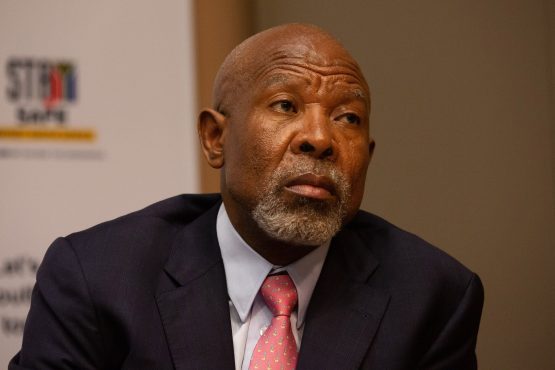Sarb hikes repo rate by 50bps

A repo rate hike of 50 basis points (bps) was announced by South African Reserve Bank (Sarb) Governor Lesetja Kganyago just after 15h00 on Thursday.
The central bank’s Monetary Policy Committee (MPC) surprised the market with a sharper increase than most economists and commentators were expecting – a move that takes the repo rate to 7.75%.
The hike comes in the wake of stubbornly high inflation, which came in higher in the latest StatsSA’s reading for February at 7%.
On Thursday, Kganyago said three MPC members preferred the announced increase, while two voted for a 25bps increase.
“The revised repurchase [repo] rate is now less accommodative and is more consistent with the current view of risks to inflation. The aim of policy is to anchor inflation expectations more firmly around the mid-point of the target band and to increase confidence of attaining the inflation target sustainably over time,” the governor noted.
“Guiding inflation back towards the mid-point of the target band can reduce the economic costs of high inflation and enable lower interest rates in the future,” he added.
The Sarb now expects headline inflation to only “sustainably revert to the mid-point of the target range by the fourth quarter of 2024”.
Load shedding blow
Kganyago again highlighted the major impact of increased load shedding on the economy, saying on Thursday that the Sarb now expects GDP growth for 2023 to come in at 0.2%. This is still more optimistic than forecasts from some major banks and economists, with warnings that SA has slipped into a technical recession.
“The Bank’s forecast for GDP growth is lowered slightly… from the 0.3% expected in January.”
“The South African economy contracted by 1.3% in the fourth quarter of 2022, considerably worse than expected at the time of the January meeting. The contraction was broad-based, consistent with the extensive load shedding experienced in the final three months of the year.”
“For the whole of last year, GDP growth of 2% was achieved, compared to the 2.5% previously expected,” Kganyago pointed out earlier in his speech.
“Over the forecast period, we expect household spending and investment to grow modestly, even as load shedding and uncertainty continue to weigh heavily on consumption and investment decisions,” he said.
“The economy is forecast to expand by 1% in 2024, up from 0.7%, and by 1.1% in 2025 [up from 1%],” Kganyago said.
“Economic growth has been volatile for some time and prospects for growth appear even more uncertain than normal.”
“An improvement in logistics and a sustained reduction in load shedding or increased energy supply from alternative sources would significantly raise growth,” he added.
Repo rate reaction
The rand firmed against the US dollar, following news of the sharper repo rate hike. However, most economists and property agents expressed surprise at the higher increase.
“The surprise 50bps increase, resulting in a repo rate of 7.75%, comes at a time of renewed global volatility, with the strain in the banking sector in developed economies partly due to the post-pandemic interest rate hike cycle,” said Angelika Goliger, chief economist at EY Africa.
She added that the MPC “has turned back towards hawkishness, with three members out of the five voting for the 50bps increase – the concern of the committee being the performance of the rand going forward, given higher risk premia, load shedding and stubborn food and fuel inflation”.
Goliger said: “This may be ‘it’ and South Africans will be in a holding pattern for the rest of the year, but there is a lot of uncertainty at the moment, so I would not rule out another 25bps hike this year.”
Sanisha Packirisamy, economist at Momentum Investments, said the MPC’s decision to hike by 50bps came as a surprise to financial markets.
“A majority of 18 from 20 surveyed analysts [including Momentum] expected interest rates to increase by 25bps in the monthly Reuters Econometer poll for March 2023, while two analysts were expecting an unchanged interest rate stance,” she noted.
“Should disinflation continue in upcoming quarters to sustainably revert to the midpoint of the [inflation] target by the fourth quarter of next year, this is likely to be the end of the interest rate hiking cycle. However, if the Sarb sees inflation risks as having intensified, we could well see another 25bps hike in May,” said Packirisamy.

